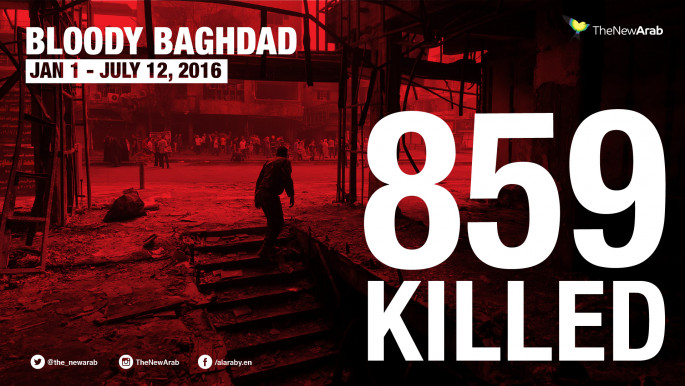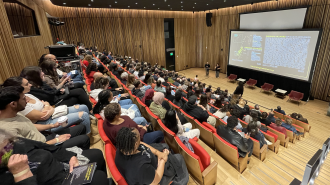Fearful Iraqis confined to homes after Baghdad blasts
"Although we are Iraqis and adapt quickly to any emergency, the vast majority of people, after all the bombings are afraid to leave their homes for days and weeks on end after the bombings," said Ahmed Saad, of the university district in Baghdad.
He relayed that as well as fearing explosions, people are also nervous of being subjected to arbitrary arrests in the vicinity of the bombings.
Additionally the closure of streets and curfews also keep residents confined to their homes.
"Our work is often affected because of the deteriorating security situation in the country, with the rise in the number of bombings it becomes difficult to exercise our lives and businesses as normal, especially as ordinary citizens often fall victim to the bombings," said Bahaa Akram, the owner of a furniture auction house.
"Since the bombing in the Kerrada district ten days ago, I didn’t leave my house unless necessary," he continued, adding that he was now thinking of leaving the city.
"With each explosion, a number of people and traders move to the Kurdistan region of Iraq, or to other countries. And the deteriorating situation leads us to sell goods at discounted prices, causing us additional losses," Akram said.
"To work and live in Baghdad and the neighbouring provinces is now to risk our lives and the lives of our families. Every time we say perhaps the security situation will improve and we can live in peace, but then a new explosion comes to dispel our hopes," he concluded.
"After any explosion the students don’t come to university and cancel their appointments – whether they are studying to be doctors or lawyers or any other discipline... they cancel their trips because they can’t get to the airports anyway," said academic Shaheen al-Salhi.
"Security forces crowd the roads after each bombing, searching for wanted men, causing panic among the people who think that they would fall victim to the blast one way or another," Salhi continued.
Ali Ghaidan, a police officer relayed that after every bombing security is deployed to reduce human losses, to prevent people from gathering at the scene or to prevent people from leaving at risk to their lives.
 |
|





 Follow the Middle East's top stories in English at The New Arab on Google News
Follow the Middle East's top stories in English at The New Arab on Google News


